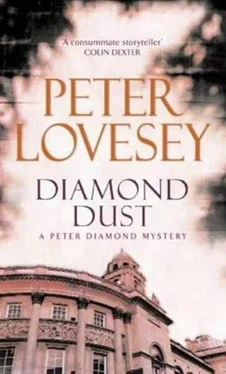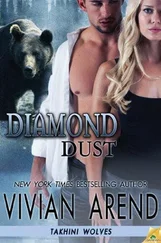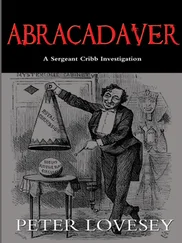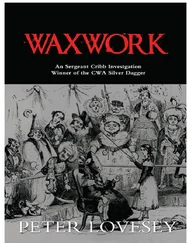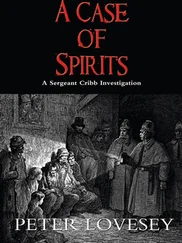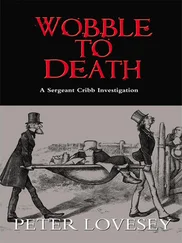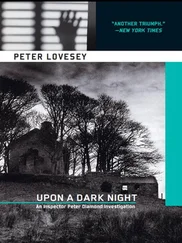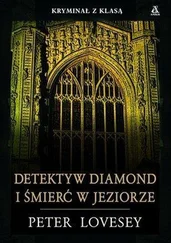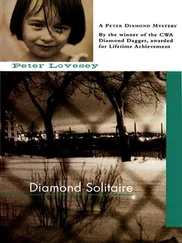'If I knew why, I'd have told you.'
'At what stage were you told she'd been shot?'
'Nobody told me. I found out for myself.'
There was a pause while the horror of that moment was relived, and when McGarvie resumed again, there was less overt hostility. 'Okay, to be accurate, you heard that a woman had been shot and you went to the park and recognised the victim as your wife?'
'You know this. Do we have to go over it?'
'DI Halliwell was competent to deal with the incident. What prompted you to go there?'
Amazing. Even his attendance at the scene was viewed as suspicious. This experience on the receiving end, having to account for everything he had done, would change for ever his attitude to interviewing a suspect.
'I said we hadn't seen much action.'
'Point taken. Spurred on by the prospect of something happening, you went to the scene. You saw who it was, and you ignored procedure at the scene of a crime and handled the victim-'
'She was my wife, for pity's sake.'
'We're going to find blood on your clothes.'
'How inconvenient.' He'd taken enough. '\bu know what really pisses me off about this farce? It's not the personal smear, the assumption that I might have murdered her. It's knowing the real killer is out there, and every minute that goes by his chance improves of getting away with this.'
'This isn't our only line of enquiry,' McGarvie said. 'I've got over a hundred men on the case.'
'For how much longer? What happens when Headquarters ask for your budget report? They'll cut the overtime. The whole thing will be scaled down.'
Georgina said with determination, 'I'll deal with Headquarters.' She asked McGarvie if he had any more questions and he said he was through and they stopped the tapes.
'I've had it up to here with you lot,' Diamond said. 'I'm going home.'
But he didn't. Instead, he drove out to the crime scene, now abandoned by everyone, and restored to normal except for the wear on the turf of hundreds of police boots. The one place where the ground had not been trampled was a small oval of fresh grass where Steph's body had lain. Someone had placed a bunch of flowers there. No message. He could have brought some himself, but he knew Steph would have been troubled by the idea of cut flowers without water. She wouldn't willingly deprive anything of life.
If he'd written a message, it would have been the one hackneyed word people always attach to flowers they leave at murder scenes. 'Why?'
He looked around him, taking in the setting. Previously he'd been aware of nothing except Steph lying dead on the ground. Now he saw a curved path lined with benches about every thirty yards. In spring, he remembered, the daffodils sprouted here and made a glorious display. The shoots were already visible. Lower down, the remains of the Victorian shrubbery, a long line of trees and bushes, hid the Charlotte Street Car Park from view. You wouldn't believe all those cars were actually only a few paces away.
Higher up the slope was the unprepossessing rear of the old bandstand with its domed roof. He walked up to it and around to the front.
The facade was much more elegant than the back, being visible from the Crescent. He could imagine an audience seated here listening to one of the German bands that were so popular around the turn of the century. The shell-shaped design was more modern in concept than the weathered stonework suggested.
At either side, separate from the bandstand, two large stone vases with handles, chipped and stained, but evidently marble, were raised on plinths. Each was protected by a flat stone canopy mounted on pillars and surrounded by a low railing. Along the top of the stonework was an inscription stating that the vases were the gift of Napoleon to the Empress Josephine in 1805, something Diamond had never noticed until now. They were spoils of the Peninsular War, presented to the city by some Bath worthy. The overgrown bushes almost hid them from view, but he could make out the letter 'J' in an Imperial circlet of leaves. It was the kind of detail that fascinated Steph, and forgetting everything for a second, he looked forward to telling her what he had found and bringing her here to see it.
Caught again. This wasn't the first time. He supposed it was what psychologists referred to as denial.
He moved back to the spot where Steph had been found. Why had the murderer chosen this location? For one thing, the park was reasonably quiet, even now, in the afternoon, and fairly well screened by trees. If it was right that she had been lured here, her killer could have remained hidden among the bushes, or behind the bandstand, until the last minute, and then approached her, keeping the gun concealed. Since there had been no evidence of a struggle, it was reasonable to assume the weapon had been held to her face and fired twice in a swift, professional action. Most gunmen knew you couldn't be certain a single shot would kill, even at point-blank range. Apparently he (or she, though it was difficult to visualise a female assassin) had quit the scene by the short route to the car park – which was huge, with more than one exit. So that was the special appeal of this location: the certainty of getting away fast. All in all, a well-chosen place.
The biggest problem must have been persuading Steph to come here.
For the first time since the murder, he was functioning as a detective. Until now he had been too devastated to think straight. For that reason alone it was right that someone other than he should head the team. Moreover, the official line made sense: having the victim's husband in charge would undermine any prosecution. Fine – so long as McGarvie was a competent, energetic stand-in. But after that farcical interrogation, Diamond's confidence in the man was in tatters. The competence was flawed, the energy misdirected. There was a sense of desperation in what was going on.
A single crow stalked the lawn, foraging for worms. The bleak look of this scene reinforced the lost opportunities.
Steph deserved a good investigation.
No sense in offering advice. Georgina and McGarvie wouldn't listen to a man they were treating as a suspect. No, the only way to get results was to go solo. Throughout their marriage Steph had put up with his cack-handed attempts at all things practical: shelves that fell off the wall, doors that stuck in the winter and let in draughts in the summer, electrical wiring that blew the fuses. She had never directly benefited from the one skill he had: sleuthing. She was entitled to it now. He would find her killer, and to hell with the problems it raised.
* * *
His spirits improved. He was putting his career on the line and maybe his life. Bugger that, he thought. This is the right decision. I refuse to be sidelined. She's my wife and no one can make me walk away from her.
At home that evening he opened a can of lager and dug about in the freezer and cooked himself a satisfying meal of one of Steph's beef casseroles with fresh potatoes and carrots. He watched a repeat of Fatuity Towers on TV and smiled for the first time in weeks.
Towards midnight, he woke in the armchair and realised he'd dozed off. He'd been dreaming, an anxious, vivid dream of being shot in the leg by an invisible man with a gun. Of limping away and feeling more shots, and dripping blood. The shots fitted the film that was running on the box, some spaghetti western with Clint Eastwood. Clint looked in fine shape still. The film bullets had obviously missed.
Diamond fingered his own leg.
'Daft.'
But it had got to him, that dream. He decided to fetch his handgun from the loft. In the coming days he might need to defend himself. He had no plans to use it, except as a deterrent. So he went upstairs, opened the hatch and let down the folding ladder. Switched on the loft light and of course the sodding thing flickered and went out.
Читать дальше
